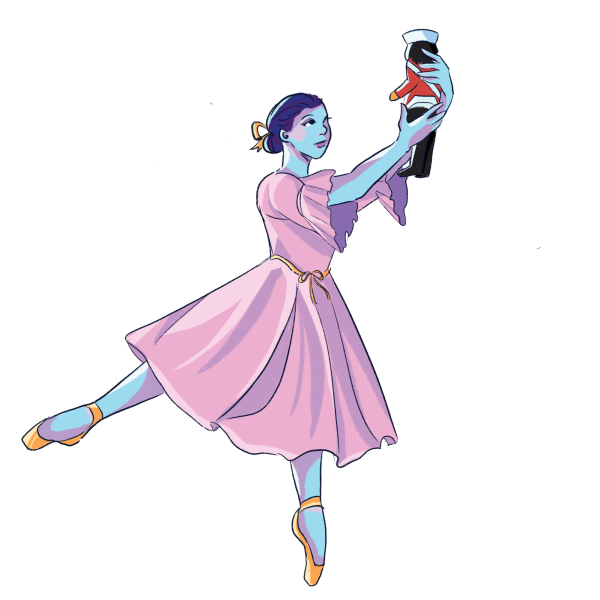Examining the Trials of a Life in the Spotlight
October 9, 2019
Once Upon a Time in Hollywood, directed by Quentin Tarantino, follows the story of Rick Dalton, a declining actor, and his stunt double Cliff Booth. The pair navigate a changing Los Angeles movie industry that looks increasingly unfamiliar to the two long-timers. Rick struggles to break through from his previous television triumphs to Hollywood success, and the movie chronicles his emotional turmoil as he comes to realize the fragility of his career. At first, the movie presents a nostalgic Hollywood scene, but as the movie progresses it gives viewers a deeper look inside the world that swirls around Rick, encouraging viewers to question the legitimacy of Hollywood’s values.
Much of the first half of the movie Rick and Cliff are frittering time away as their careers stay at a standstill. And yet, even when Rick does give effort and place significance on his job, he always ends up driving home to the same house and sleeping in the same bed. This cycle, which seems to persist no matter what Rick does, gives the initial dazzle of Hollywood a distinct monotony, one that Rick and Cliff are unaware that they are trapped in.
Furthermore, the embodiment of Rick’s goals, which takes shape in the form of celebrity Sharon Tate, is portrayed as laughable. Rick looks up to Tate’s success and wants what she has, but all the viewer is shown is her blind self-obsession. So, if everything is on a constant loop and their end goal is something to be laughed at, it begs the question: does the environment and life that Rick and Cliff are constantly caught up in actually hold any value?
But it’s evident that Rick does place value on his life in Hollywood: He bangs his head against the wall when he messes up his lines, screams at himself in the mirror when his alcoholism gets the better of him, and he envies the lavish success of his neighbors. Rick is set up to be relatable; his struggle to pick himself up off the ground below the daze of Hollywood is something that is inherent to the human experience. A melancholic soundtrack adds weight to Rick’s struggles, contrasting an otherwise upbeat setting.
Despite Rick’s genuine struggle, the fact remains that the world around him was set up as superficial, so what is all this for? Why are Cliff and Rick so consumed in the artificial existence that Hollywood is feeding them?
By the end of the movie, it’s apparent that Hollywood’s purported superficiality is arbitrary. Once Upon a Time in Hollywood simply uses Hollywood as the backdrop for an experience that shows how everyone finds it difficult to manage change, regardless of setting. That’s where the viewer may uncover a true connection with the story.
The movie questions why Hollywood’s inhabitants are so worried about their status in such a pointless place, but in the process, it gives the viewer a chance to grow close to the characters and reach a place of understanding with their struggles.
Tarantino’s fairytale portrayal of 1960s Hollywood juxtaposed against the very real struggles of its inhabitants drives home the fact that many personal battles are universal. Furthermore, by shining a light below the surface level of Hollywood’s glamour, Once Upon a Time in Hollywood says that the superficiality of Hollywood is acceptable because it fills a void of meaning in people’s lives that would otherwise remain empty.








